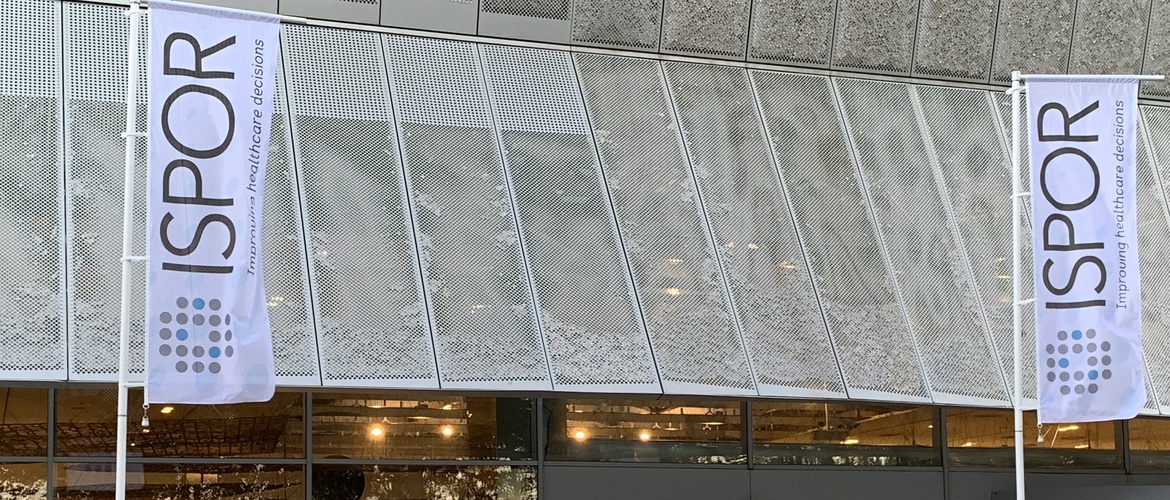
Choose a channel
Check out the different Progress in Mind content channels.

Progress in Mind

A 200-strong audience of health economics and outcomes research professionals at ISPOR 2018 overwhelmingly voted “yes” when asked whether they thought patients should be involved in early dialogues with health technology assessment (HTA) bodies and regulators. The early dialogues are carried out on behalf of health technology manufacturers to provide a stakeholder perspective on the manufacturers’ evidence generation plans and insights on how the HTA agencies are likely to assess technologies within a disease area. Heidi Livingstone, Senior Public Involvement Adviser, National Institute for Health and Care Excellence (NICE), UK, described the early dialogue process developed over the past few years by NICE.
Patients are the ultimate beneficiaries of new treatments and can contribute valuable and unique perspectives to medicines development and HTA decision-making that no other individual can replicate. Such perspectives include the symptoms they live with and how those symptoms impact their lives, management approaches and standards of care, as well as their experience as participants of clinical studies.
Patients can contribute valuable and unique perspectives for manufacturers and HTAs
HTA agencies have processes for patient involvement in the assessment of health technologies — but only a few, including NICE and more recently EUnetHTA on a pan-European level, have processes in place to enable early dialogues. Early dialogue processes demand significant investment by the HTA:
The NICE early dialogue process starts with a briefing book
Heidi Livingstone has been working on early dialogues for NICE on behalf of health technology manufacturers for the past 3 years. She explained that companies seek NICE scientific advice through early dialogues to increase the likelihood that their clinical development studies and other studies not only meet NICE evidence requirements, but also the needs of patients. She commented, however, that carrying out early dialogues does not guarantee that a manufacturer will meet HTA requirements, and that there can be a mismatch between the needs of patients and manufacturers.
In the future it is hoped that the briefing book will be addressed to the patient
The process carried out by NICE starts with a briefing book provided by the manufacturer. At present the book is not aimed at the patient and the briefing book shared with the patient may be redacted. It is hoped that in the future the briefing book might be addressed to and written for the patient as well as for NICE.
The briefing book details the precise profile of the patients, or patients and their carers required to provide feedback. NICE then proceeds to identify patients. Such identification is resource intensive, and often easier when the manufacturer is looking for someone with a rare disease because patient organizations are usually able to help. It can be challenging to identify a patient who fits a precise profile for “common” diseases such as chronic obstructive pulmonary disease and type 2 diabetes mellitus, Heidi said.
Three potential stages of patient involvement
Early dialogue patients are interviewed by phone, have a face-to-face meeting with the chairs, and contribute to the draft report
Patients identified by NICE are interviewed by phone to confirm their match with the briefing book profile, and the chairs are briefed. The chairs arrange and carry out a face-to-face meeting with the patient to provide the manufacturer with the perspectives they have requested. Although NICE prefers to have face-to-face meetings with two patients at a time because patients then feel more comfortable and are likely to provide different perspectives, the face-to-face meetings are usually with one patient.
The perspectives provided by the patient are detailed in a draft report with further input from the patient, and the final report is sent to the manufacturer. Not all patients contribute to all three steps requiring their input for a variety of reasons.
Early dialogues provide valuable information and may influence trial design
Patient perspectives on outcomes of a clinical trial can influence trial design
Early dialogues enable patients to provide “powerful” feedback on evidence generation plans; and through their perspectives on whether the proposed outcomes of any clinical trial will meet their needs, they are able to influence clinical trial design.
Early dialogues have benefits for all involved, concluded Heidi. The patients find them a positive experience, while the unique insights provided by the patients are valued by companies and other stakeholders. In addition, the NICE technical team has found that patients have provided information nobody realized was missing.